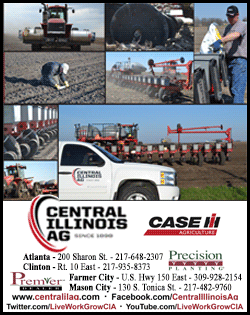|
 The state highway department, known as PennDOT, received reports
of bones in what appeared to be an impromptu burial site beneath a
broad meadow that had once been the site of a poorhouse, said Bob
Rescorla, a PennDOT inspector at the site. The state highway department, known as PennDOT, received reports
of bones in what appeared to be an impromptu burial site beneath a
broad meadow that had once been the site of a poorhouse, said Bob
Rescorla, a PennDOT inspector at the site.
"There were rumors it was a mass grave here," Rescorla said of the
burial ground along State Highway 61 in Schuylkill Haven, about 100
miles northwest of Philadelphia.
Historians say the Spanish flu pandemic touched all parts of the
world and claimed tens of millions of lives. The flu could kill
quickly, sometimes in less than a day.
In Schuylkill County, the Pottsville Republican-Herald newspaper
reported that some 17,000 residents were sickened and several
thousand died during the pandemic, leaving as many as 3,000 children
orphaned.
 PennDOT workers had shaved the embankment for a road widening
project earlier in the week, Rescorla said, and heavy rains later
caused part of the cut to collapse, exposing bones.
Kevin Mock, an archaeologist with PennDOT, told Reuters on Friday he
could see leg bones and part of a jaw bone protruding from the
embankment. He said there were no coffins.
His research found the connection of the meadow to the Spanish flu
pandemic.
Most victims, Mock said, were buried without coffins. He thought it
unlikely there could still be active H1N1 flu pathogens - the strain
that caused the 1918 pandemic - in the bones or soil given the
passage of time and the usual practice of sprinkling lye over buried
without coffins.
[to top of second column] |

A team of professors and students from Mercyhurst University in
Erie, Pennsylvania, arrived at the site on Friday afternoon along
with the Schuylkill County Coroner's Office and cadaver dogs.
The Mercyhurst team set up a sieve for screening soil for bone
fragments, and marked visible bone fragments protruding from the
embankment with small red flags.
Dr. David Moylan, the Schuylkill County coroner, said the team would
not excavate the entire field, but will remove remains near the
highway. They will be taken to Mercyhurst University for medical
examination and possible DNA extraction.
After that, Moylan said, they will be cremated and buried in a
modern cemetery for the unidentified or unclaimed maintained by the
county.
(Reporting by David DeKok; Editing by Eric M. Johnson and Sandra
Maler)
[© 2015 Thomson Reuters. All rights
reserved.]
Copyright 2015 Reuters. All rights reserved. This material may not be published,
broadcast, rewritten or redistributed.
 |